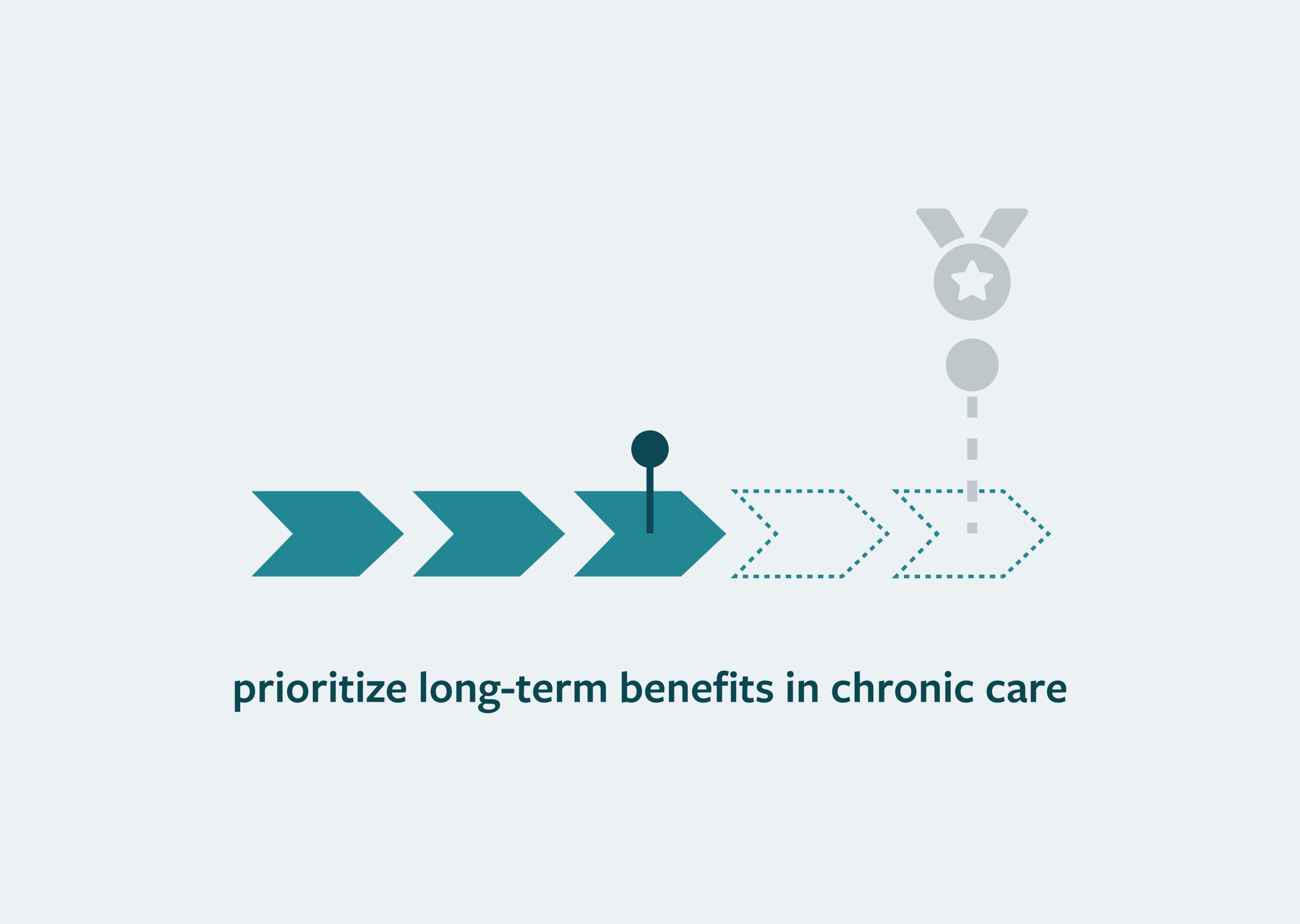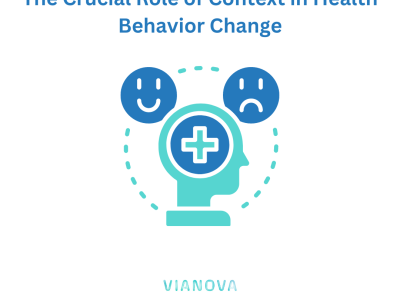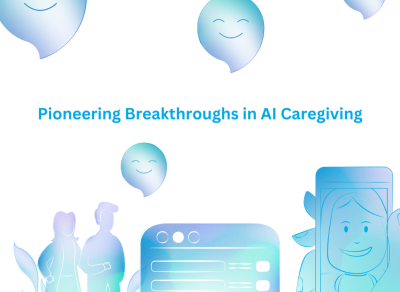
Time Discounting and Long-Term Thinking in Chronic Care
Managing chronic illnesses often requires individuals to make choices that have long-term benefits but may not yield immediate rewards. However, many people are prone to time discounting, a behavioral tendency where they prefer immediate rewards over long-term gains. In this article, we will examine the challenge of time discounting in chronic care management and explore strategies inspired by behavioral economics to help patients shift their focus towards the long-term advantages of consistent self-care.
The Challenge of Time Discounting
Time discounting, also known as temporal discounting, is a common cognitive bias that can hinder effective chronic care management. It involves individuals placing a higher value on immediate rewards or gratification while discounting or undervaluing the benefits that accrue over time. This bias can manifest in various ways in the context of chronic care:
- Medication Adherence: Patients may prioritize short-term relief or avoidance of side effects over the long-term benefits of consistent medication adherence.
- Lifestyle Changes: Adopting healthier habits, such as dietary modifications or exercise, may be delayed or neglected due to the lack of immediate results or gratification.
- Regular Check-ups: Individuals may skip routine medical check-ups or screenings, underestimating the long-term preventive value of early detection.
Behavioral Economics Strategies
Behavioral economics provides valuable insights and strategies to address time discounting and encourage long-term thinking in chronic care management:
- Visual Aids: Visual aids, such as charts, graphs, and infographics, can illustrate the long-term benefits of consistent self-care. For instance, showing how regular exercise and healthy eating lead to improved blood sugar control over time can help patients visualize the cumulative effects of their actions.
- Personal Narratives: Sharing personal stories of individuals who have successfully managed their chronic conditions through long-term thinking and self-care can inspire patients. Hearing about real-life experiences can make the benefits of consistent self-care more relatable and tangible.
- Immediate Rewards Linked to Long-Term Goals: Create short-term, achievable milestones with immediate rewards that align with long-term health goals. For example, patients could receive small incentives for achieving specific dietary or exercise targets.
- Goal Setting: Encourage patients to set specific, measurable, attainable, relevant, and time-bound (SMART) goals for their chronic care. Regularly revisiting and adjusting these goals can help individuals stay focused on long-term outcomes.
- Education and Awareness: Providing comprehensive education about the long-term consequences of chronic conditions and the benefits of consistent self-care can help patients better understand the value of their actions.
Benefits of Addressing Time Discounting
Addressing time discounting and promoting long-term thinking in chronic care management can yield several benefits:
- Improved Adherence: Patients who focus on long-term benefits are more likely to adhere to treatment plans, medication regimens, and lifestyle changes, leading to better disease control.
- Preventive Care: Patients are more likely to prioritize preventive care and regular check-ups, reducing the risk of complications and hospitalizations.
- Enhanced Quality of Life: Long-term thinking can lead to healthier habits and an improved overall quality of life for individuals living with chronic conditions.
- Reduced Healthcare Costs: By preventing complications through consistent self-care, healthcare costs can be reduced for both individuals and healthcare systems.
Time discounting is a significant challenge in managing chronic illnesses, as it can lead individuals to prioritize immediate rewards over long-term health benefits. However, by applying strategies rooted in behavioral economics, such as visual aids, personal narratives, and immediate rewards tied to long-term goals, patients can shift their focus towards the long-term advantages of consistent self-care. As healthcare continues to evolve, addressing time discounting can lead to better patient outcomes, improved adherence, and a greater emphasis on long-term thinking in chronic care management.



FEEL FREE TO DROP US A LINE.